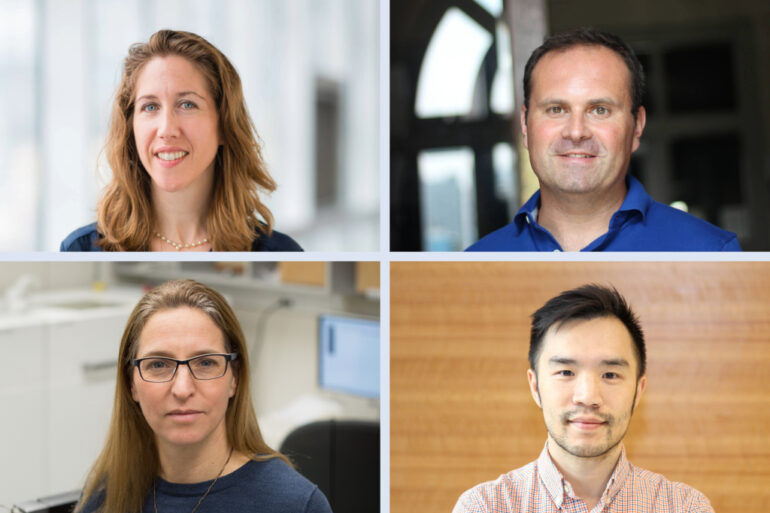Four esteemed faculty members from the Institute of Biomedical Engineering (BME) at the University of Toronto have successfully secured funding from the Canadian Institutes of Health Research (CIHR) through the Project Grant Program’s fall 2023 funding cycle. The CIHR funding will support their cutting-edge research projects aimed at advancing health-related knowledge and outcomes.
Penney Gilbert – Unraveling Mysteries of Duchenne Muscular Dystrophy
Penney Gilbert, an associate professor at BME and Canada Research Chair in Endogenous Repair, leads the Gilbert Lab. The lab’s goal is to restore skeletal muscle function by tapping into the potential of muscle stem cells. Gilbert’s CIHR-funded project focuses on Duchenne muscular dystrophy (DMD), a debilitating disease primarily affecting young boys. By utilizing a pioneering 3D muscle cell culture system, Gilbert aims to understand the effects of DMD mutations on human neuro-muscular physiology. The outcomes will guide the development of therapeutic treatments, including the exploration of existing pharmaceuticals and the creation of new therapies.
Jan Andrysek – Revolutionizing Ankle-Foot Orthosis Fabrication
Associate Professor Jan Andrysek’s lab specializes in designing, developing, and clinically evaluating interventions to enhance mobility and postural balance in individuals with lower-limb impairments. Andrysek’s CIHR-funded project seeks to revolutionize the fabrication of Ankle-Foot Orthoses (AFOs), commonly prescribed for conditions like stroke and cerebral palsy. By comparing digitally and traditionally produced AFOs through a randomized control trial, Andrysek aims to inform the design of a larger study. The research team, based out of Holland Bloorview Kids Rehabilitation Hospital includes orthotists, clinicians, engineers, physiotherapists, and researchers, in partnership with Boundless Biomechanical Bracing developing innovative digital tool chains, anticipate this work will contribute to more efficient and patient-friendly orthotic interventions.
Cari Whyne – Optimizing Orthopaedic Surgery Scheduling with Bioengineering
Professor (status-only) Cari Whyne focuses on translational bioengineering research, aiming to understand musculoskeletal biomechanics and develop minimally invasive technologies for diagnosing and treating musculoskeletal diseases. Whyne’s CIHR-funded project challenges traditional manual approaches to scheduling orthopedic surgeries. Leveraging machine learning and mathematical optimization, the team aims to create an automated solution that optimizes scheduling by predicting operative times and efficiently utilizing resources. This data-driven approach could lead to significant savings and reduced patient wait times.
Leo Chou – Advancing Therapeutic Vaccines through DNA Nanotechnology
Assistant Professor Leo Chou focuses on developing self-assembling molecular technologies to address biomedical challenges. Chou’s CIHR-funded project delves into therapeutic vaccines for cancer. Utilizing DNA nanotechnology, the team aims to convert nucleic acid adjuvants into self-assembling nanoparticles. These nanoparticles will be designed to effectively deliver antigens and adjuvants to lymph nodes, overcoming current challenges in the co-delivery of vaccine components. The project aims to elicit potent antigen-specific cellular immunity, contributing to advancements in cancer treatment.
The CIHR funding will propel these research projects forward, fostering innovative solutions that have the potential to transform healthcare outcomes. We express gratitude for the support and look forward to making significant contributions to the field of biomedical engineering and health research.


